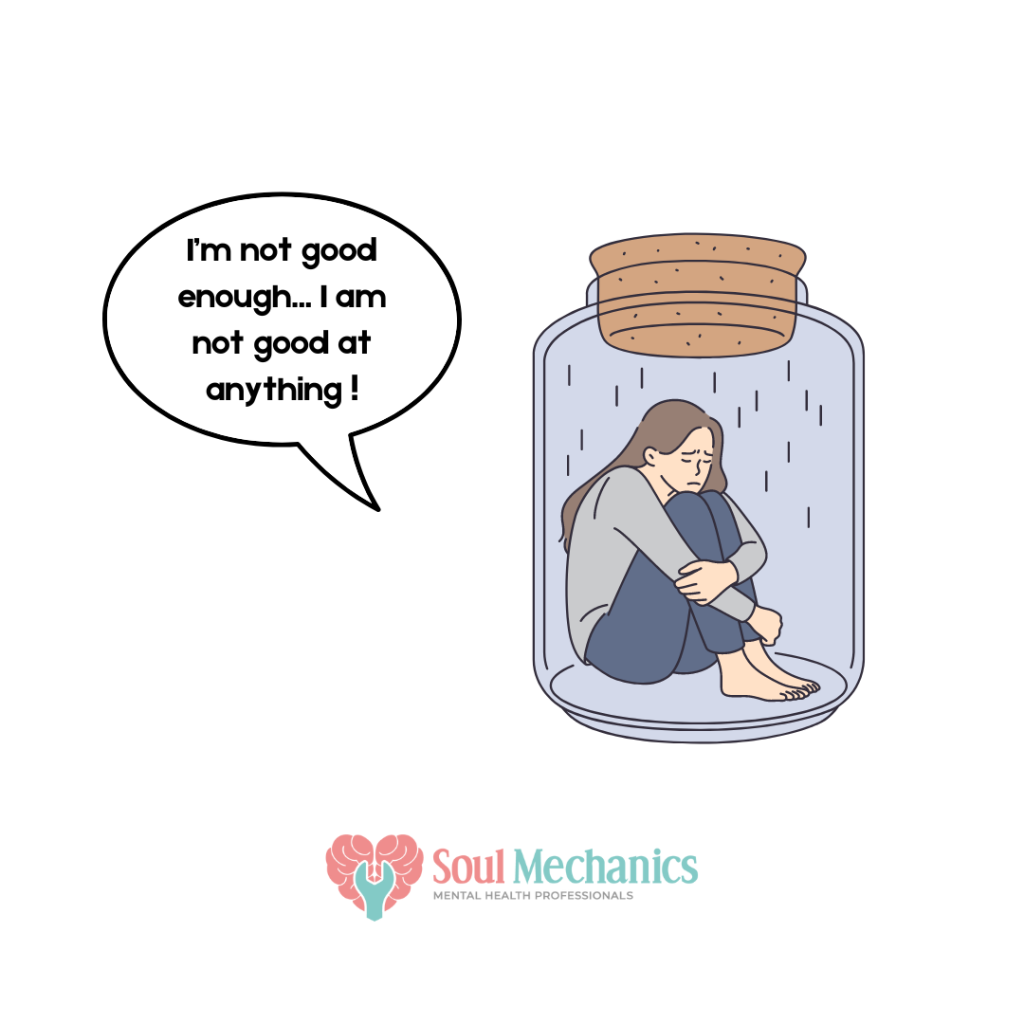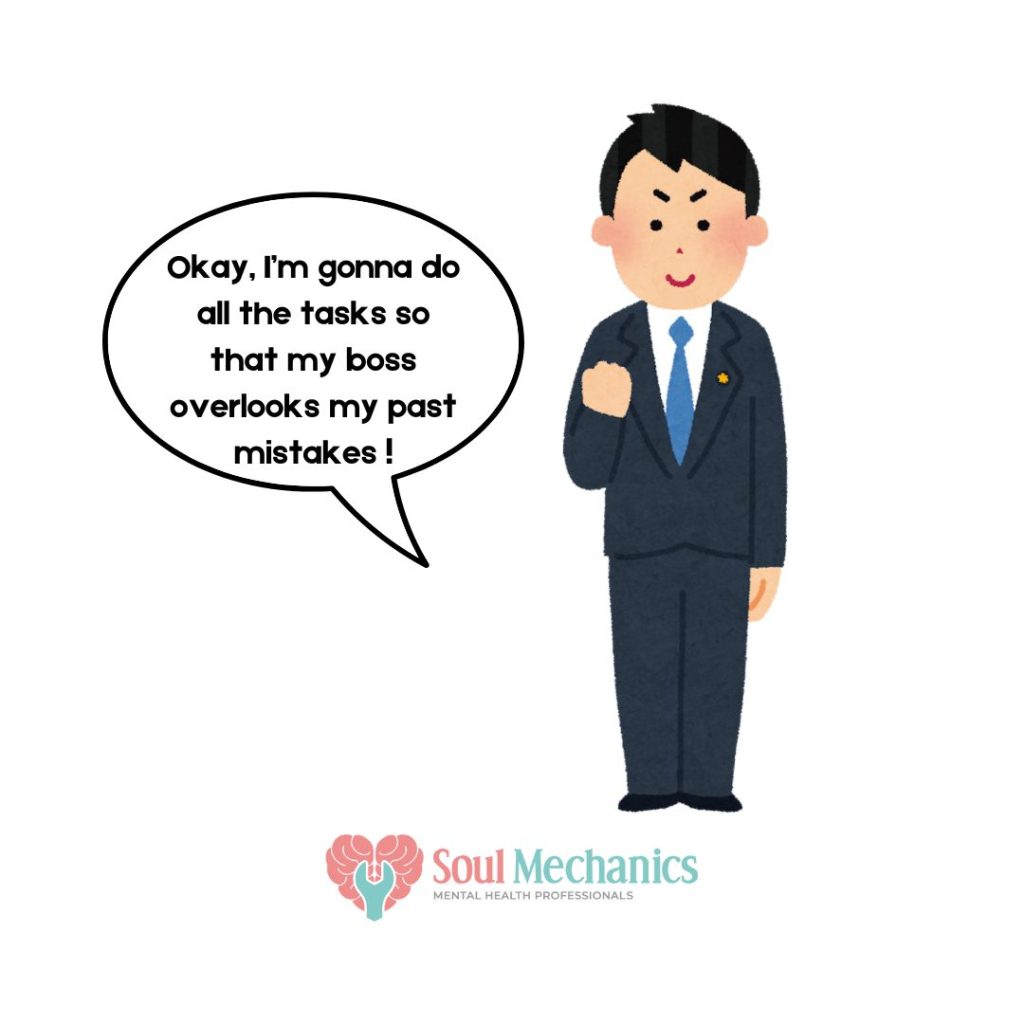What is Your Biggest Insecurity?
What is Your Biggest Insecurity?

Written By: Kelly Chan Jia Li, Clinical Psychologist (MAHPC(CP)00353)

Everyone experiences insecurity at some point in their lives. It is that nagging thoughts or feelings that we are not good enough, smart enough, successful enough, or just not enough in some way. Insecurities can shape how we see ourselves, how we interact with others, and even how we make decisions.
For some, these insecurities can be managed, but for others, they can be deeply rooted and affect various aspects of life, from relationships to careers. Hence, let’s explore the concept of insecurity in a deeper manner.
What Exactly is Insecurity?
Insecurity is the lack of confidence or certainty in oneself. It often arises from the perceived gap between who we are and who we think we need to be. Insecurity can be about almost anything, from your appearance, abilities, and relationships to your self-worth. Insecurities can be triggered by factors such as past experiences, upbringing, social pressures, or even comparisons with others.

What are the Types of Insecurity?
Body Image Insecurity

This type of insecurity involves how we perceive our physical appearance. You may feel self-conscious about your height, weight, skin, hair, or other aspects of your body. The idea and expectation of “ideal” body images in media and social networks often intensify these feelings.
Social Insecurity
Social insecurity stems from the fear of being judged or rejected by others. This can lead to anxiety in social situations, fear of speaking up, or difficulty making new friends. You may constantly worry about saying the wrong thing or not fitting in your social circles, which can hold you back from building connections with others.
Performance Insecurity
This insecurity is related to how you perceive your abilities and competencies. Performance insecurity often manifests in inadequacy at work, school, or personal hobbies. Imposter syndrome, a condition where you feel like a fraud despite your achievements, is a common form of performance insecurity.
Relationship Insecurity
Relationship insecurity is the fear related to being unlovable, unworthy, or not enough for a partner, family member, or friend. These insecurities often lead to jealousy, clinginess, or the fear of abandonment.

Financial Insecurity
Financial insecurity arises from worries about not having enough financial resources to meet one’s needs or desires. You might have the fear of unexpected expenses and avoid spending money on things that could bring you joy and fulfilment. This insecurity can be rooted in childhood experiences, societal pressure, or real-life financial struggles.
What are the Roots of Insecurity?
Past Experiences and Trauma
Negative past experiences, such as bullying, rejection, or failure, can leave a lasting impact and shape insecurities. For instance, being bullied as a child for your weight can lead to lifelong insecurities about how you look. Negative comments from family, friends, or even strangers can shape how you see yourself negatively.
Upbringing and Family Environment

Family plays a crucial role in shaping our self-image. You might develop deep-rooted insecurities if you grew up with overly critical parents or in an environment where you felt unworthy of love.
Social Comparisons
We are constantly exposed to others’ “highlight reels” on social media. Comparing yourself to others’ seemingly perfect lives can lead to feelings of inadequacy and insecurity. When we see images of people who seem to have it all, such as having a perfect life, successful careers, and happy relationships, it is natural to feel like we do not measure up.
Personal Beliefs and Mindset
Sometimes, insecurities come from limiting beliefs we hold about ourselves. Thoughts like “I am not good enough” or “I do not deserve success” can create a negative self-image.

Lack of Affirmation
If you did not receive much positive reinforcement and affirmation growing up, whether from parents, teachers, or friends, it is easy to develop insecurities. Without affirmation, you might struggle to believe in your worth, even in the face of success.
How Insecurity Manifests in Daily Life?
People-Pleasing Tendency

Someone with insecurity often goes out of their way to please others, even at the expense of their own needs and boundaries. They might agree to things they do not want to do to avoid conflict or gain approval. They might constantly say “yes” to everything, even when they are exhausted because they fear being left out or disliked.
Self-Sabotage
Insecurity can also lead to self-sabotage, where someone unconsciously undermines their own success. This could be through procrastination, indecision, or quitting before they even start.
Overcompensation
Sometimes, insecurity may drive someone to overcompensate by acting overly confident or boastful. This is often a defence mechanism to mask their true feelings of inadequacy.

How to Overcome Insecurity?
Recognise and Acknowledge Your Insecurities

The first step to overcoming insecurity is recognising and acknowledging it. It is okay to understand that everyone has insecurities; it is a part of being human. Instead of suppressing or ignoring your insecurities, try to face them. Take some time to reflect on what exactly makes you feel insecure and why. Writing it down can be helpful.
Reframe Negative Self-Talk
Insecurity often stems from negative self-talk (e.g., “I am not good enough”). Pay attention to your inner critic and reframe these thoughts. Ask yourself if there is any evidence supporting these thoughts or if you are being overly harsh on yourself. Reframe negative thoughts with positive affirmations. For instance, if you think, “I am terrible at my job,” reframe it as, “I am learning and growing every day, and I bring value to my team.”
Practice Self-Compassion
Be kind to yourself. Remember that having flaws and making mistakes is okay, as nobody is perfect. Treat yourself with the same kindness and understanding that you would offer a friend. You can also develop a self-care routine that includes activities that make you feel good about yourself. This could be anything from journaling, exercising, or simply taking time to relax.
Focus on Your Strengths
Instead of dwelling on your weaknesses, shift your focus to your strengths and accomplishments. Everyone has qualities and talents that make them unique and valuable. Celebrate your successes, no matter how small they may seem. Journalling can help you identify your strengths and successes by writing down three things you did well each day. Over time, this practice can help shift your focus from what is lacking to what is thriving.

Seek Professional Help
If your insecurities are deeply rooted and have affected your daily life, consider seeking professional help from a counsellor or psychologist. Therapy can provide a safe space to explore these feelings and help you work through insecurities.
Reminder: If you or your loved ones are struggling with feelings of insecurity, please don't hesitate to reach out to us at Soul Mechanics KD or Soul Mechanics Ipoh. Remember, seeking help is not a sign of weakness but strength!
Surround Yourself with Supportive People
The people you spend time with significantly impact how you feel about yourself. Surround yourself with those who encourage and accept you for who you are. Distance yourself from relationships that bring you down or make you feel worse about yourself. Instead, invest in connections that foster growth and positivity.
Take Action Towards Your Goals
Insecurity can often make you feel stuck. Taking small steps toward your goals can build confidence and help you realise your abilities and strengths. You can break down big goals into smaller, manageable steps (e.g., SMART goals). For every goal you have achieved, let’s celebrate each milestone and use it as fuel to keep moving forward.
A Step Towards Self-Confidence

Insecurity is a universal experience, but it does not have to control your life. By understanding your insecurities and taking proactive steps to overcome them, you can transform them into opportunities for growth and self-discovery. Remember, you are not alone in this journey. Everyone has insecurities, and everyone has the potential to overcome them.
Let’s embrace your strengths, be kind to yourself, and do not be afraid to seek support when needed. As Dory from Finding Nemo once said, “Just keep swimming”, one step at a time.
If you enjoyed reading this, why not broaden the horizon of knowledge by learning about "Five Mistakes We Make That Damage Our Mental Health"? You can read the blog here.
For more content related to mental health do follow us on our official Instagram.

